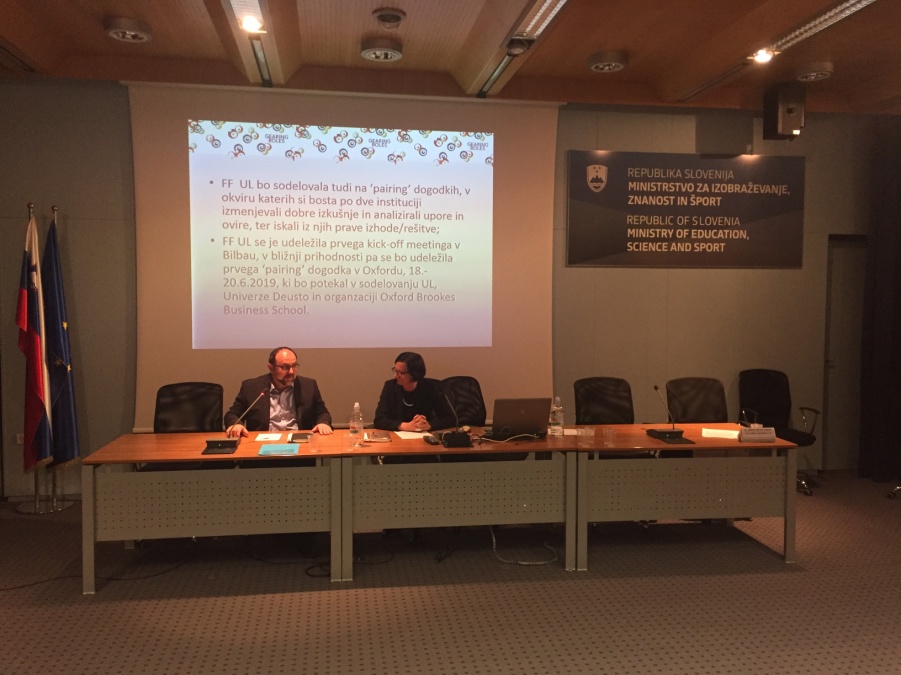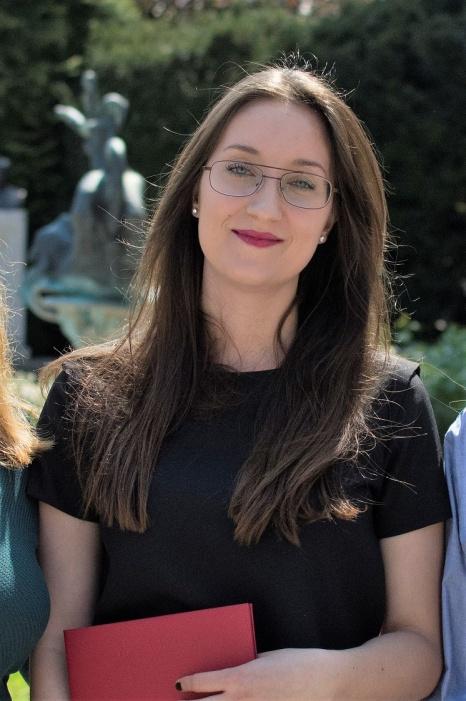
15 Apr GENDER EQUALITY PLANS: DIFFICULTIES BUT ALSO TANGIBLE CHANGES
This blog consists of a brief summary of the “Gender Equality and long-term institutional changes” Conference, held by the Committee of Equal Opportunities in the Field of Science in Slovenia. The University of Ljubljana (UL) attended this conference on behalf of GEARING-Roles. Overall, this was an exceptional opportunity for GEARING-Roles partners to learn from good practices and gain valuable insights on the challenges that other Slovenian Gender Equality Plan (GEP) faced in implementing GEPs.
This year Gearing Roles UL researchers including group leader, Milica Antić Gaber, and the Dean of the Faculty of Arts, Roman Kuhar, presented the GEARING-Roles project, at the Gender Equality and long-term institutional changes Conference along with 3 other GEP implementing Horizon 2020 projects: Plotina, R&I PEERS and CHANGE.
In their presentations, representatives from the EU project Plotina, pointed out that their GEP was based on monitoring and assessing gender equality in decision-making, career development, work-life balance and integrating gender dimensions in research. The presenter, which was from the Slovenian National Institute for Chemistry, added that at the inception of the project, the GEP was considered yet another administrative burden and as such, faced some resistance among co-workers. She stated that overcoming such resistances through the open and visible support of the institution’s leaders for both the GEP and gender equality as a whole, was of vital importance for the project. They also presented the special measures they had adopted within their project to ensure the GEP was long-lasting and sustainable. One of these measures was a photographic exhibition of the researchers employed at their institute. They also introduced the practice of anonymizing CVs for any job applicants, in order to battle the phenomenon of ‘invisible discrimination’.
Similarly to the Plotina project R&I PEERS, assess the success of GEPs on a woman’s work-life balance. However, this project also organises mentorship programs and undertakes gender equality awareness raising activities. The project is also developing several anonymous channels for reporting disrespectful behaviour, sexual harassment, and the abuse of power. Additionally, the project also launched a PR campaign to promote the excellence of women in science and adopted gender-sensitive language in the official documents of the Research Centre. Unlike the experience of the Slovenian National Institute of Chemistry, the Research Centre of Slovenian Academy of Sciences and Arts did not face resistance from colleagues despite still remaining mostly an ‘old boys club’. Actually, employees were rather enthusiastic about the implementation of GEPs and thus, social networks and ‘alliances’ within the Research Centre were easy to construct.
It was also interesting to hear about how researchers dealt with colleagues’ resistances against the implementation of GEPs at the Slovenian National Institute of Biology, which was part of EU funded project CHANGE. To dismiss negatives attitudes among employees, the project appointed so-called ‘transfer agents’, which were mostly faculty deans and vice-deans, who were in charge of the implementation of GEP proposed measures and were formally bound to execute them. Additionally, researchers sought to focus on informal avenues to discuss and further the GEP process, particularly as they considered that scientific networks and connections are often made through informal social connections and events such as after work drinks. This thought process saw the implementation of what they called ‘Friday cakes’, which consisted of social events for all employees, allowing for the development of professional networks and social networks among colleagues who perhaps had only met over email. They also organised mentorship programs, undertook awareness raising activities and implemented specific hiring measures in order not to discriminate against women in science.
The GEARING-Roles project addresses similar issues and also aims to enhance gender equality in research and higher education. However, GEARING-Roles also employs measures to prevent gender biases, sexism and sexual harassment, which the other projects mentioned here do not. This is of vital importance since the elimination of any kind of sexism and gender-based violence is at the very basis of achieving gender equality.
The Dean of the Faculty of Arts, Roman Kuhar, at UL, which is a partner of the GEARING-Roles Project, also discussed colleagues’ resistances towards GEPs and using gender sensitive language in the Faculty, which sparked some controversy and serious push back.
Despite some of these issues, the fight for gender equality, across Slovenia, has been incredibly promising. As someone who is at the very beginning of her professional career, it is, therefore, extremely exciting, to be part of a project which wants to push equality even further.
About author:
TJAŠA CANKAR

Tjaša Cankar B.A (History and Sociology), is currently finishing a Master’s degree at the Department of Sociology at Faculty of Arts, University of Ljubljana. Her academic interests lie in feminist political theory, critical social theory and geopolitical economy. She is a member of Slovenian NGO Gender Equality Research Institute, where she hopes her work will lead to improving gender equality and promoting women’s leadership and political participation.



No Comments